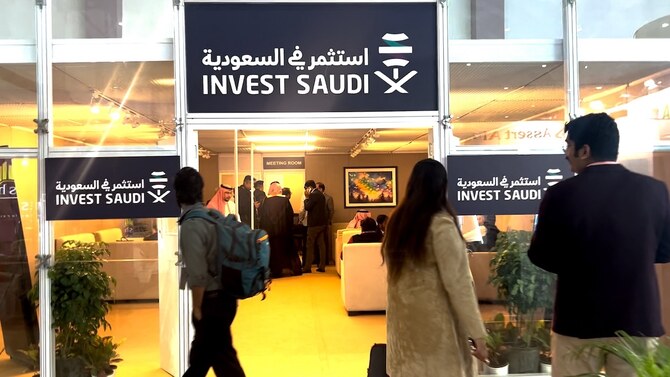JAIPUR: Saudi Arabia is exploring cooperation with India in solar and wind energy, infrastructure, tourism, and technology-based industries, its Ministry of Investment said on Tuesday, as it participated in the Rising Rajasthan Investment Summit in Jaipur.
The government of India’s largest state by area is hosting the investment event from Dec. 9 to 11, as it seeks to double Rajasthan’s gross domestic product to $350 billion in the next five years.
The summit was opened on Monday by Prime Minister Narendra Modi, who encouraged foreign delegates — including from Saudi Arabia, Oman, the UK and Japan — to explore the state’s potential as a global business destination.
The Saudi Ministry of Investment’s pavilion in the forum’s exhibition space presented Invest Saudi — the nation-wide investment brand — and promoted opportunities in the Kingdom., while delegation members held talks with Indian companies.
“We are talking about supporting our private sectors: Indians to invest in Saudi Arabia and Saudi companies to invest in Rajasthan and India,” Abdullah Al-Arfaj, director of international relations for South and West Asia at the Saudi Ministry of Investment, told Arab News.
“Through its participation in this summit, the Saudi Ministry of Investment seeks to foster productive dialogue and build actionable partnerships … The summit is an ideal platform to strengthen Saudi-Indian cooperation and establish the foundations for long-term, sustainable partnerships.”
Al-Arfaj, who was meeting with Rajasthan leadership, said they were identifying “shared areas that can contribute to the economic growth of both nations, such as solar and wind energy, infrastructure development, tourism, and technology-based industries, as well as the development of smart cities, green energy initiatives, and advanced technological solutions.”
With vast desert areas hosting photovoltaic plants, Rajasthan ranks first in India for solar energy production. It is also the largest producer of marble, has the nation’s biggest lead mines, and contains confirmed deposits of rare-earth elements.
The state’s capital, Jaipur, is a major tourist attraction. A UNESCO World Heritage Site, it is known as the “pink city” from the dominant color scheme of its 18th-century structures.
A number of cooperation agreements are expected to be signed during the summit between Saudi and Indian businesses.
Faisal Al-Jurbua, a member of the Saudi delegation, said his company was planning to establish a desert resort in Rajasthan — the first such property in the Indian state.
“Hopefully, in about six months, we’re going to start,” the CEO of Riyadh-based HAP Experience Co. told Arab News.
“It will be the same that we have in Saudi Arabia. It will be an oasis … We’re going to do some mix between the two cultures,” he said.
“We will be having a lot of work here in Rajasthan in the near future.”




















